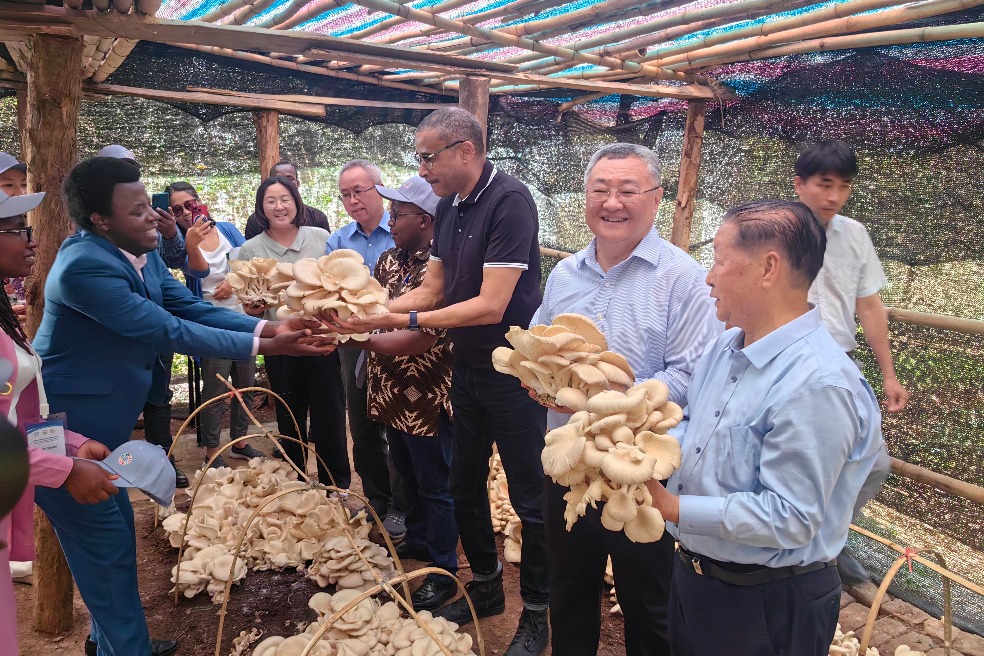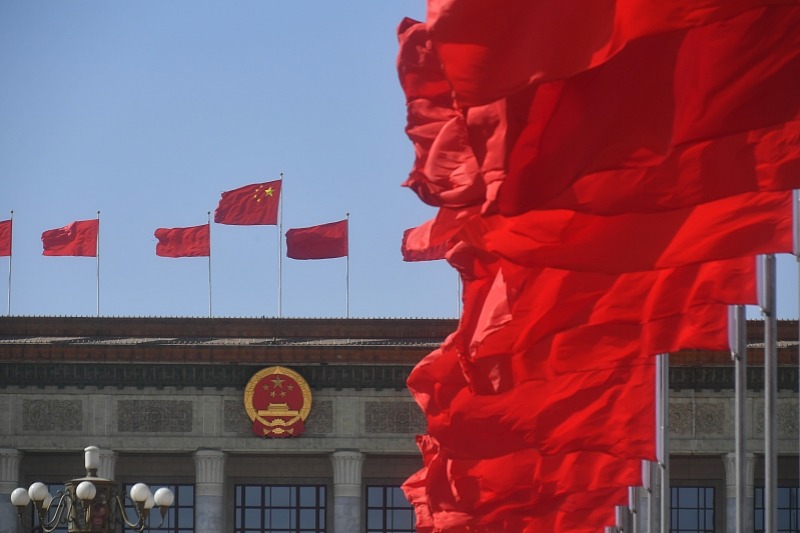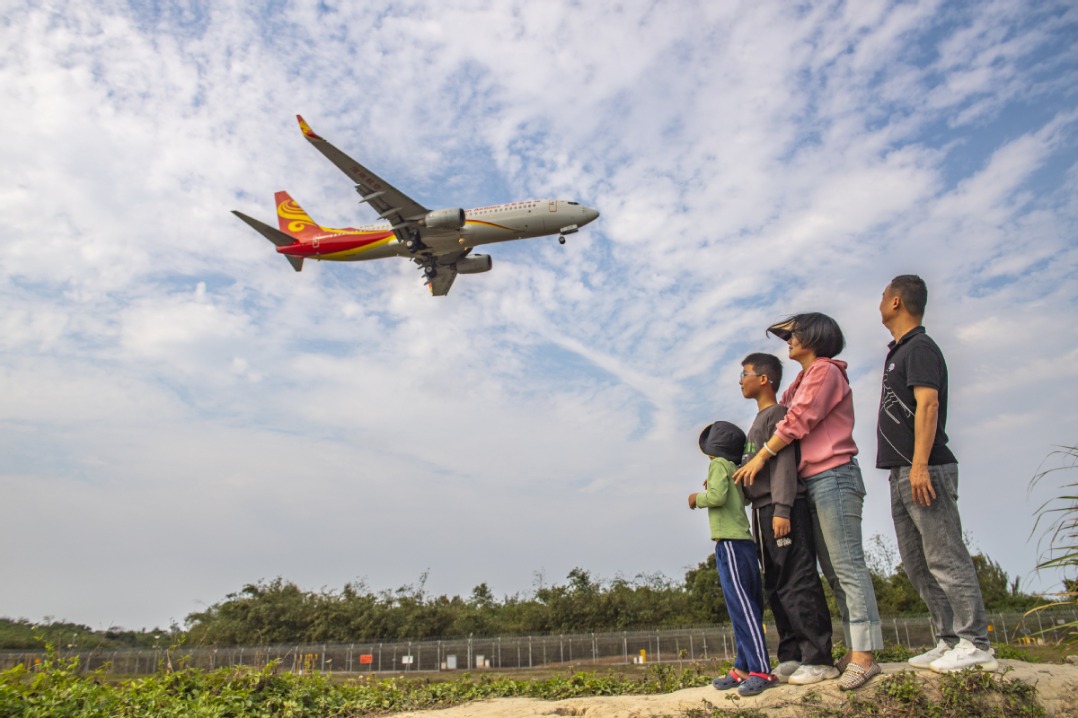Empowering small-scale farmers by integrating the 'four chains'


A farmer drives an agricultural machine to cover newly planted sugarcane seeds with mulching film in Rongan county, Guangxi Zhuang autonomous region, on Feb 27. TAN KAIXING/XINHUA
Food security is of paramount importance to a nation, critical to national security, social stability, economic development and public health. As one of the major grain-producing regions in China, Henan province's production graph shows an upward trend. But Henan's agricultural sector, dominated by small-scale family farms, faces challenges such as difficulties in achieving economies of scale, limited use of technology, inadequate funds, and poor risk resilience, which hinder the modernization of agriculture, making it difficult to establish an organic connection between small-scale farmers and modern agriculture, severely impacting food security.
Data from the third national agricultural census show that 97.6 percent of the total farmers in Henan are small-scale farmers.
Strengthening the integration of the "four chains" — the innovation chain, industry chain, funding chain and the talent chain — is an effective way to realize the organic connection between small-scale farmers and modern agriculture, thereby ensuring food security.
While the innovation chain promotes the use of modern agricultural technologies and the industry chain helps achieve economies of scale and integrates markets, a strong funding chain provides necessary financial support for small-scale farmers and the talent chain cultivates and introduces professional talents in the agricultural sector.
Under the guidance of the government and the functioning of market mechanisms, the integration of the "four chains" will facilitate the proper allocation of resources. The integration of the "four chains" signifies mutual empowerment, and optimization of technology, industry, finance and talent, and consolidates core innovative elements such as technology, management, data and finance into the industry chain, forming a virtuous circle of innovation-driven development.
The industry chain facilitates the cross-application and integration of talents and innovation resources, promoting agricultural modernization, guiding innovative resources to the talent chain, and increasing talent supply. This leads to better coordination among the industry chain, talent chain and the innovation chain, facilitating the organic connection between small-scale farmers and modern agriculture.
Three major problems have been hindering the establishment of an organic connection between small-scale farmers and modern agriculture. First, insufficient policy coordination and implementation, regional policy differences, and lack of consistency in the agricultural sector call for strengthening the coordination mechanisms between agricultural departments and crop-producing regions.
Also, the implementation of agricultural policies suffers due to a lack of effective coordination mechanisms across departments and regions. For example, the construction of high-standard farmland in Henan is managed by different departments, whose planning, standards, fund utilization and organizational implementation are inconsistent.
Some areas or key technological aspects in the agricultural sector lack sufficient cohesion and thus the sector cannot attract and retain talent, necessitating improvements in talent training, evaluation, and incentive mechanisms. Last year, Henan provided rural talent training for about 583,000 people, and skilled personnel training for 324,000. Still the agricultural sector cannot attract young talents, leading to talent shortage, which affects the development of agricultural technologies.
And third, it is difficult for the agricultural sector to get enough financing. So the obstacles to funding need to be removed. Despite various measures taken by governments and financial institutions at all levels, multiple obstacles still prevent enough funds from flowing into the farm sector, which especially affects small-scale farmers and agricultural enterprises.
To address the problems, here are some strategic recommendations. To begin with, there is need to adhere to policy guidance, make agricultural policies more flexible and strengthen the coordination between different departments and between departments and crop-growing regions. The authorities should also boost the integration of the "four chains", extend the agricultural industry chain, and align the agricultural industry with market demand.
Establishing mechanisms for linking production and sale, promoting cooperation between small-scale farmers and modern agricultural enterprises also can help establish an organic connection between small-scale farmers and modern agriculture. So will implementing specific policies, establishing special funds, giving tax incentives, and ensuring policy consistency.
The authorities should focus on innovation-driven development to achieve breakthroughs in key agricultural technologies, while encouraging leading technology enterprises to play a bigger role in agricultural modernization, building collaborative innovation platforms, forming industry alliances to promote innovation, and facilitating information sharing and resource integration.
Popularizing the use of modern agricultural technologies among farmers, providing technical support for them, and building agricultural technology service systems will promote modern agriculture, and establishing better coordination among industry, the academia and researchers, and encouraging independent research and development by agricultural enterprises will boost the development of modern agriculture.
Besides, talent cultivation is essential to attract bright minds to the agricultural sector, while forming an integrated mechanism for the development of the industry chain and the talent chain will improve the sector. And hiring agricultural technology experts to provide technical guidance and services will help integrate small-scale farmers in distinctive agricultural industry clusters.
Giving financial support by, among other things, removing the obstacles to financing, and expediting the integration of the "four chains", and establishing interactive mechanisms between the agricultural industry chain and the funding chain will help boost the agricultural sector's development. More important, the authorities have to ensure the funds meant for the farm sector reach every small-scale farmer to establish an organic connection between small-scale farmers and modern agriculture.
The views don't necessarily reflect those of China Daily.
The author is vice-president of Zhengzhou University and executive dean of the Henan Institute for High-Quality Development.
If you have a specific expertise, or would like to share your thought about our stories, then send us your writings at opinion@chinadaily.com.cn, and comment@chinadaily.com.cn.


































